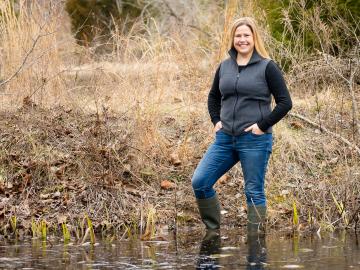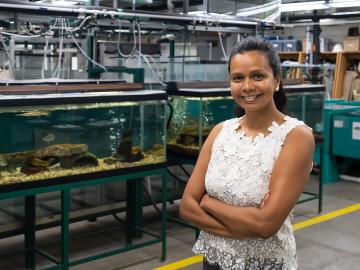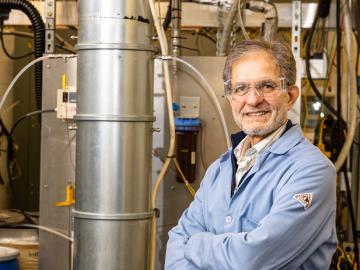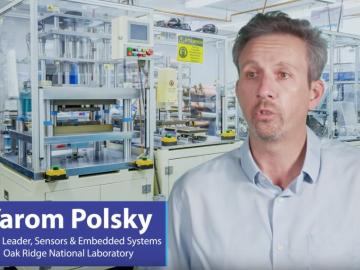
Filter News
Area of Research
News Type
News Topics
- (-) Clean Water (8)
- (-) Partnerships (27)
- 3-D Printing/Advanced Manufacturing (56)
- Advanced Reactors (12)
- Artificial Intelligence (34)
- Big Data (13)
- Bioenergy (40)
- Biology (43)
- Biomedical (26)
- Biotechnology (11)
- Buildings (21)
- Chemical Sciences (37)
- Climate Change (37)
- Composites (12)
- Computer Science (70)
- Coronavirus (23)
- Critical Materials (13)
- Cybersecurity (23)
- Decarbonization (33)
- Education (3)
- Element Discovery (1)
- Energy Storage (55)
- Environment (72)
- Exascale Computing (12)
- Fossil Energy (1)
- Frontier (18)
- Fusion (21)
- Grid (22)
- High-Performance Computing (37)
- Hydropower (2)
- Isotopes (28)
- ITER (3)
- Machine Learning (18)
- Materials (64)
- Materials Science (61)
- Mathematics (4)
- Mercury (6)
- Microelectronics (1)
- Microscopy (25)
- Molten Salt (2)
- Nanotechnology (32)
- National Security (34)
- Net Zero (5)
- Neutron Science (57)
- Nuclear Energy (41)
- Physics (40)
- Polymers (17)
- Quantum Computing (10)
- Quantum Science (28)
- Renewable Energy (1)
- Security (17)
- Simulation (12)
- Space Exploration (3)
- Statistics (1)
- Summit (23)
- Sustainable Energy (43)
- Transformational Challenge Reactor (4)
- Transportation (37)
Media Contacts

ORNL, TVA and TNECD were recognized by the Federal Laboratory Consortium for their impactful partnership that resulted in a record $2.3 billion investment by Ultium Cells, a General Motors and LG Energy Solution joint venture, to build a battery cell manufacturing plant in Spring Hill, Tennessee.

Spanning no less than three disciplines, Marie Kurz’s title — hydrogeochemist — already gives you a sense of the collaborative, interdisciplinary nature of her research at ORNL.

Moving to landlocked Tennessee isn’t an obvious choice for most scientists with new doctorate degrees in coastal oceanography.

While Tsouris’ water research is diverse in scope, its fundamentals are based on basic science principles that remain largely unchanged, particularly in a mature field like chemical engineering.

The National Alliance for Water Innovation, a partnership of the Department of Energy’s Oak Ridge National Laboratory, other national labs, university and private sector partners, has been awarded a five-year, $100 million Energy-Water Desalination Hub by DOE to address water security issues in the United States.


